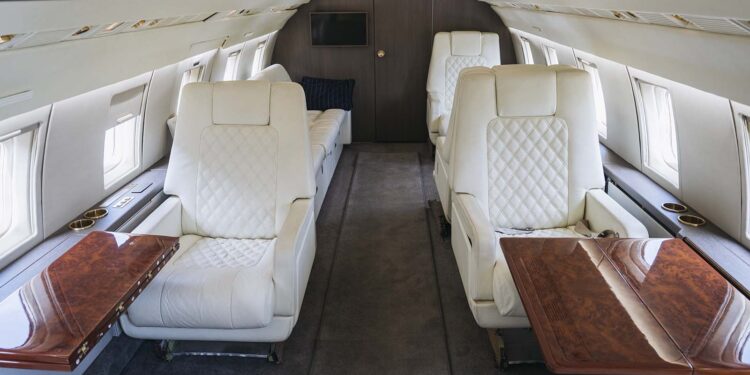How Cabotage Regulations May Impact Your Flight

Cabotage is the transport of goods or passengers between two points in the same country by an aircraft registered in another country. The application of this regulation varies from country to country and changes from time to time. Penalties for cabotage violations range from fines, to payment of all applicable duties and taxes, to seizure of aircraft. As best practice, business jet operators should routinely verify cabotage restrictions before all international flights. The following are some examples of cabotage regulations and how to avoid issues arising from them:
1. Cabotage Regulations in the European Union (E.U.)
To transport E.U. nationals within the E.U., private non-revenue operators have the option of importing their aircraft. However, the expenses to do this have changed from a standard nominal fee to paying a fee equal to a percentage of the value of the aircraft. For charter (non-scheduled commercial) flights, your landing permit gives you permission to operate the approved schedule. The U.K., France, Germany, and Italy have been more stringent on application of cabotage for charter (non-scheduled commercial) aircraft and may deny permits (at the discretion of the appropriate Civil Aviation Authority [CAA]).
2. Cabotage Regulations in Africa
Cabotage regulations and enforcement vary by country. Cabotage is an issue in South Africa, and private non-revenue operators should carry a letter of declaration from the owner to prove the flight is not for hire. Landing permits are required for charter (non-scheduled commercial) operations, with crew and passenger lists required per flight leg. Cabotage is generally prohibited in Mozambique.
3. Cabotage Regulations in the Middle East
Cabotage regulations vary throughout the region. In Kuwait, cabotage is strictly prohibited. On the other hand, there are currently no cabotage issues in Saudi Arabia.
4. Cabotage Regulations in Asia
China does not permit cabotage, and the CAA restrictions apply to both private non-revenue and charter (non-scheduled commercial) flights. India lacks clear regulations on cabotage. There are generally no problems picking up and flying Indian nationals within the country, but this may change at a moment’s notice. For this reason, we recommend that you speak to your 3rd-party provider about cabotage restrictions for every flight.
5. Cabotage Regulations in Australia
Cabotage is only an issue for charter (non-scheduled commercial) operators. Permission for cabotage must be requested through CAA Australia, and this is done via the landing-permit process.
6. Cabotage Regulations in Central and Latin America
Each country in Latin America has its own cabotage restrictions. For example, in Mexico, private non-revenue operators must carry a letter on company letterhead explaining the relationship between the passengers and the company. Mexico has very stringent cabotage regulations and only allows charter (non-scheduled commercial) operators to make one stop within the country. Exceptions include a technical fuel stop or a mandated stop in Cozumel (MMCZ) or Tapachula (MMTP) when arriving from the south or the Caribbean. On the other hand, Brazil only subjects scheduled commercial operators to cabotage regulations.
7. Cabotage Regulations in North America
Cabotage rules in Canada require special attention. Non-Canadian registered charter operators are prohibited from carrying local traffic – regardless of nationality – between two points in Canada. The only exception to the rule for U.S. operators is if passengers originated from a departure point outside of Canada and are carried or dropped off in Canada. In that case, they will be allowed to proceed within Canada, but they cannot pick up anyone unless the last stop is departing outside of Canada. Contact your 3rd-party provider for information on other aircraft-operator nationalities.
There are no cabotage restrictions for private non-revenue operations as long as the owner, a guest of the owner, or employees are onboard and aren’t paying for the flight.
Conclusion
It’s the exclusive right of a country to control use of its airspace. Whether you use a 3rd-party provider or do the research on your own, it is important to know the rules related to cabotage in all regions you’re operating to.
Questions?
If you have any questions about this article, contact me at marshallweber@univ-wea.com.




